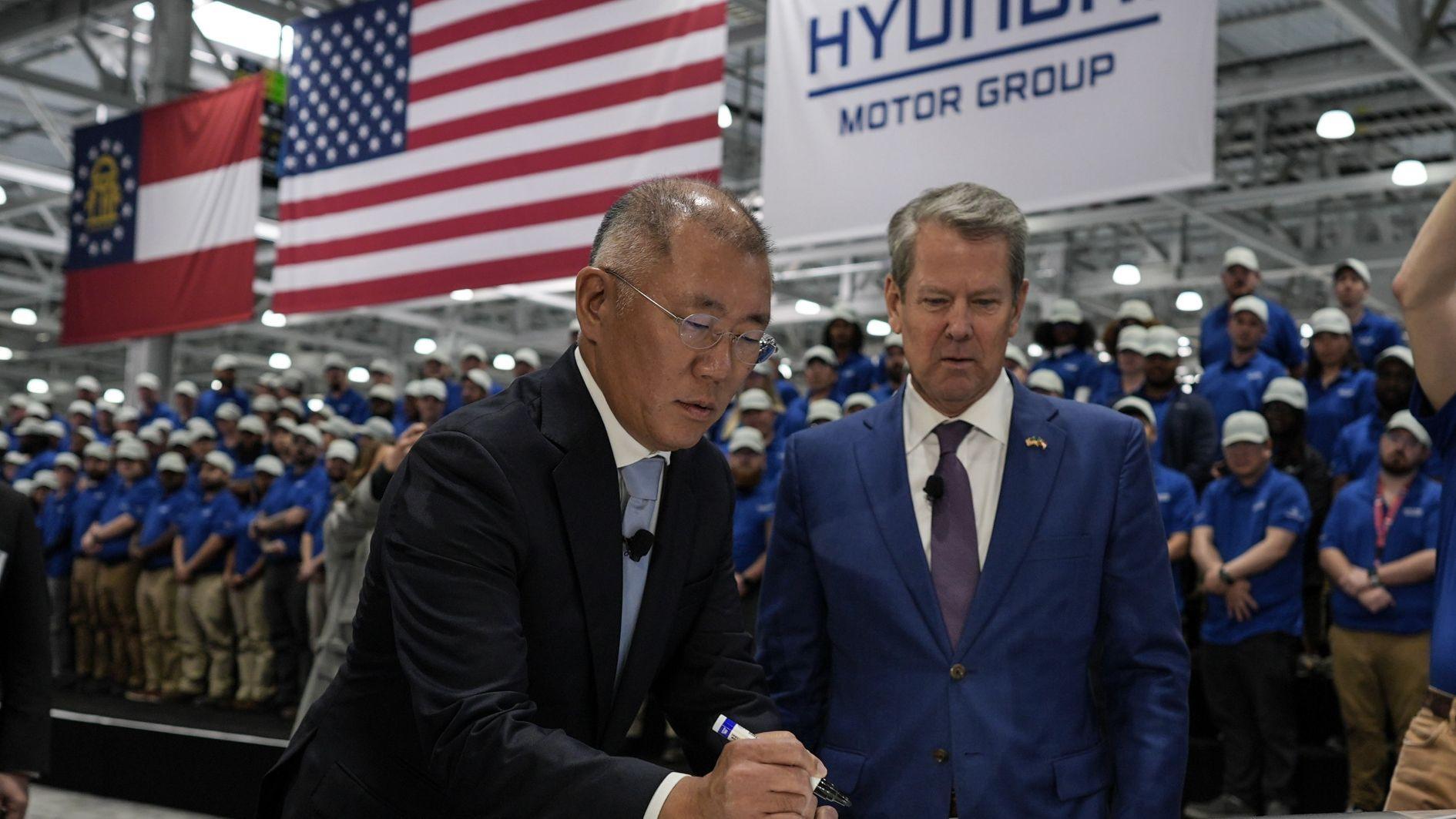
South Korean President Lee Jae Myung said on Thursday that a massive U.S. immigration raid on a Hyundai-LG battery factory site was "bewildering" and could have a chilling effect on future investment.
Hundreds of workers detained during last week's raid in the U.S. state of Georgia were set to be released from detention yesterday and flown back to South Korea.
The raid came less than two weeks after a summit between President Donald Trump and Lee, and just weeks after the countries reached a July agreement that spared South Korea from the Trump administration’s highest tariffs, but only after Seoul pledged $350 billion in new U.S. investments.
Lee blamed the raid on "cultural differences" saying that in South Korea, American nationals teaching English while on a tourist visa was not seen as "a serious issue."
After the detentions, South Korean companies "can't help but question whether setting up a plant in the U.S. is worth the potential risks," Lee said.
"This could have a significant impact on future investment decisions, particularly when evaluating the feasibility of direct operations in the U.S.," he added.
South Korea is a staunch security ally and major investor for the United States, with its top companies pouring billions into developing factories and plants in America.
Many South Korean companies have relied on bringing in their own workforce during project development periods, with industry sources telling AFP it is common practice to use visa workarounds to bring in skilled labor and avoid project delays.
Lee said that for South Korean companies "when setting up facilities, equipment and factories, skilled technicians are essential."
"Someone has to install the machinery, and the necessary workforce simply doesn't exist locally in the U.S.," he said, adding that the companies had long relied on bringing in their engineers for short-term periods to train local workers.
"But now, even that basic request is being rejected," he said.
Lee said Seoul was negotiating with Washington "to ensure that visa issuance for investment-related purposes operates normally."
This could include "securing additional quotas" or even creating a new visa category, he said, adding that he trusted the "U.S. side will find a solution."
"But under the current circumstances, Korean companies will have little choice but to hesitate about making direct investments in the U.S.," he added.
South Koreans made up the majority of the 475 people arrested at the Hyundai-LG battery plant under construction last week, according to immigration agents.
The operation was the largest single-site raid conducted since U.S. President Donald Trump launched a sweeping immigration crackdown, a top political priority since he returned to office in January.